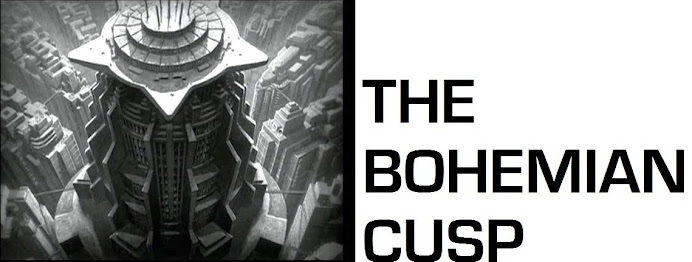

"All art is theft." A statement by Picasso and an idea echoed in the pages of Reality Hunger: A Manifesto, a new book by author David Shields.
At face value, Reality Hunger is a book composed of everyone else's words. Quite literally, the book is made up excerpts and quotes from other authors and other works, but assembled, as though it were a literary collage, to produce an entirely new and powerful work. The manifesto is a call for the advancement of literature as an art, and greater introspection into the boundaries of copyright and the ownership of culture, if not reality itself.
Literature, like film (not even touching music), as popular arts are far more governed by legality and business than they are by self-referential freedom. Take, for example, the world of visual arts, and the ability to repurpose pre-existing materials and even pre-existing works to form an entirely new, and often challenging, piece. Great and famous examples of this can be found in the works of Dadaist Marcel Duchamp, who's pieces in criticism ranged between challenging the very foundations of fine-arts to being absolute nonsense. Shields argues that this same sort of re-purposing should also exist in writing.
by legality and business than they are by self-referential freedom. Take, for example, the world of visual arts, and the ability to repurpose pre-existing materials and even pre-existing works to form an entirely new, and often challenging, piece. Great and famous examples of this can be found in the works of Dadaist Marcel Duchamp, who's pieces in criticism ranged between challenging the very foundations of fine-arts to being absolute nonsense. Shields argues that this same sort of re-purposing should also exist in writing.

Though, reference is always, and has always been possible in literature, through proper citation techniques and the legalities surrounding plagarism, Shields' manifesto focuses on the assemblage of words themselves, rather than the ideas they represent. Essentially questioning that though ideas maybe protected by copyright laws, it is not truly possible to copyright the order of the words that produce the idea. As William Burroughs asked, "who owns the words?" This notion is reminiscent of the Library of Babel, the short story by Jorge Luis Borges that details a seemingly infinite library where every combination of letters, characters, and words exist to form every book, thought and idea imaginable.
Of course, still published under the modern literary practices, Shields could not produce the work without copious amounts of citations. However, staying true to his message, each bibliographical page is marked by a dotted line and scissors at its crease, encouraging the reader to simply cut the pages out.
As society produces culture at increasingly rapid rates, the necessity to interpret and re-interpret reality becomes paramount. Moreover, underlying all of this, is a call for an empowered, and often subjective, pursuit of the "real" through unguarded, societal self-reflection.
At face value, Reality Hunger is a book composed of everyone else's words. Quite literally, the book is made up excerpts and quotes from other authors and other works, but assembled, as though it were a literary collage, to produce an entirely new and powerful work. The manifesto is a call for the advancement of literature as an art, and greater introspection into the boundaries of copyright and the ownership of culture, if not reality itself.
Literature, like film (not even touching music), as popular arts are far more governed
 by legality and business than they are by self-referential freedom. Take, for example, the world of visual arts, and the ability to repurpose pre-existing materials and even pre-existing works to form an entirely new, and often challenging, piece. Great and famous examples of this can be found in the works of Dadaist Marcel Duchamp, who's pieces in criticism ranged between challenging the very foundations of fine-arts to being absolute nonsense. Shields argues that this same sort of re-purposing should also exist in writing.
by legality and business than they are by self-referential freedom. Take, for example, the world of visual arts, and the ability to repurpose pre-existing materials and even pre-existing works to form an entirely new, and often challenging, piece. Great and famous examples of this can be found in the works of Dadaist Marcel Duchamp, who's pieces in criticism ranged between challenging the very foundations of fine-arts to being absolute nonsense. Shields argues that this same sort of re-purposing should also exist in writing.
Though, reference is always, and has always been possible in literature, through proper citation techniques and the legalities surrounding plagarism, Shields' manifesto focuses on the assemblage of words themselves, rather than the ideas they represent. Essentially questioning that though ideas maybe protected by copyright laws, it is not truly possible to copyright the order of the words that produce the idea. As William Burroughs asked, "who owns the words?" This notion is reminiscent of the Library of Babel, the short story by Jorge Luis Borges that details a seemingly infinite library where every combination of letters, characters, and words exist to form every book, thought and idea imaginable.
Of course, still published under the modern literary practices, Shields could not produce the work without copious amounts of citations. However, staying true to his message, each bibliographical page is marked by a dotted line and scissors at its crease, encouraging the reader to simply cut the pages out.
As society produces culture at increasingly rapid rates, the necessity to interpret and re-interpret reality becomes paramount. Moreover, underlying all of this, is a call for an empowered, and often subjective, pursuit of the "real" through unguarded, societal self-reflection.

No comments:
Post a Comment